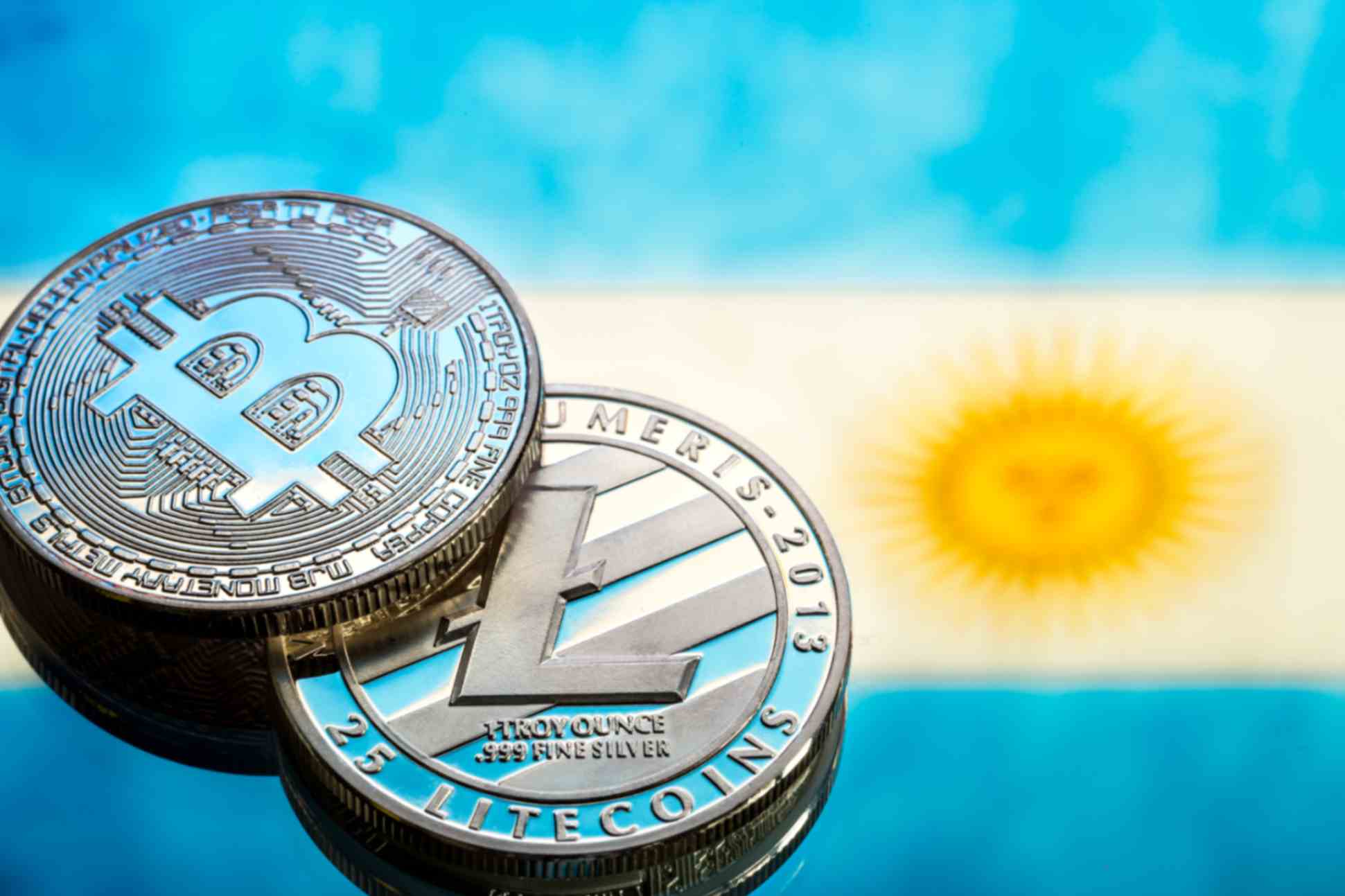What Are VASP Rules and Why Do They Matter?
For those in the cryptocurrency space, Virtual Asset Service Providers (VASPs) are businesses such as exchanges and wallet providers that handle cryptocurrency transactions. Because they act as intermediaries, VASPs are a key focus for regulators aiming to combat money laundering and terrorism financing.
In Latin America (LATAM), the regulatory landscape for virtual assets and VASPs is diverse. The regulatory approaches vary across the region, with Argentina and El Salvador proactively establishing regulatory compliance, while Mexico, Colombia, and Peru are taking a cautious approach, monitoring developments before implementing full frameworks across financial institutions.
In this article, we’ll shed light on the Argentine crypto landscape, which may lead you to start paying attention to crypto developments and financial transactions in Argentina.

The State of Crypto Adoption in Argentina
Argentina is quickly emerging as a global leader in cryptocurrency adoption, driven by economic instability, a devaluing peso, and a tech-savvy population seeking alternatives to traditional financial systems. Here are some key stats from a Chainalysis report to help put you into perspective on how the financial landscape has changed:
- Between July 2023 and June 2024, crypto users in Argentina have overtaken Brazil with the largest deposited amount of crypto in LATAM, with inflows totaling $91 billion.
- Argentina’s stablecoin activity is 17% higher than the global average.
Key Changes in Argentina’s Crypto Regulatory Framework
2025 is a landmark year as the National Securities Commission (CNV) steps in as the official crypto regulator in Argentina. In March 2025, they announced CNV Resolution 1058/2025, which establishes new rules for the crypto players in Argentina.
The most impactful change is the mandatory registration system for VASPs. This means:
- Mandatory Registration: All entities, including foreign companies operating in or targeting users in Argentina, must register with the CNV. Deadlines are staggered: individuals by July 1, 2025; Argentine legal entities by August 1, 2025; and foreign legal entities by September 1, 2025.
- Minimum Net Worth: New minimum net worth requirements are established in USD, varying by the type of VASP service provided.
- Enhanced Compliance: Registered VASPs must adhere to strict security, transparency, and AML/CTF standards. This includes robust Know Your Customer (KYC) procedures, risk assessments, and monitoring for suspicious activities.
- Periodic Reporting: VASPs are now required to submit monthly reports detailing client numbers, traded volume, and top assets, as well as annual reports including system audits and financial statements.
How Do VASP Rules Affect Travelers Using Crypto?
For tourists and digital nomads, these VASP rules introduce a new layer of considerations when travelling with crypto in Argentina.
Can tourists still pay for hotels, tours, and dining with crypto?

Yes, you can still pay for goods and services with crypto. Platforms like Travala, which offer crypto payment options for hotels and flights, operate within these evolving frameworks. However, the experience on regulated platforms will involve more stringent checks and specific regulations now apply.
Are peer-to-peer transactions affected?
While the regulations primarily target centralized VASPs, the increased scrutiny on the broader crypto ecosystem can indirectly impact peer-to-peer crypto (P2P) transactions. P2P platforms often act as intermediaries, and while direct individual-to-individual transfers might remain outside explicit VASP registration requirements, the overall focus on AML/CTF means that large or suspicious P2P transactions could draw attention from authorities. The push for a regulated environment may make P2P transactions less attractive for those seeking full compliance and security within the formal financial system.
Why Should You Pay Attention to Crypto Developments in Argentina?
Argentina is not just another player in the global crypto scene—it’s a pioneer. With over $91 billion in crypto transactions between July 2023 and June 2024, it leads Latin America in adoption rates. President Javier Milei’s pro-crypto stance further cements Argentina as a hub for innovation in digital finance.

Here’s why you should keep an eye on Argentina:
- A Thriving Crypto Culture: Buenos Aires is home to over 130 businesses accepting Bitcoin and other cryptocurrencies.
- Cutting-Edge Regulations: The new VASP rules position Argentina as a leader in creating a secure and transparent crypto ecosystem.
- Opportunities for Innovation: The combination of grassroots adoption and top-down support makes Argentina fertile ground for blockchain startups.
Stablecoins are becoming an indispensable asset
Reports have also shown that the Argentine stablecoin market is one of the world’s largest in terms of share of stablecoin transactions. Stablecoins offer practical use cases for everyday life in Argentina:
- Store of Value: Convert devaluing pesos to USDT or USDC to hedge against inflation.
- Daily Expenses: Pay for goods and services through apps like Binance Pay and Lemon Cash.
- Remittances: Fast, low-cost cross-border payments for settlements or freelance work.
- Trading: Trade stablecoins for other cryptocurrencies or fiat on platforms like Binance or Bitso.
- Travel: Book travel experiences—flights, hotels, and activities—through platforms like Travala.
Impact on Crypto Service Providers and Exchanges
The new VASP rules are reshaping how crypto service providers and exchanges operate in Argentina.
How do exchanges operating in Argentina comply?
- Registration: All exchanges—local or international—serving Argentine users must register with the CNV.
- Local Presence: Foreign exchanges may need to set up an Argentine entity or register a branch.
- Capital Requirements: Providers must meet minimum net worth standards based on the services offered.
- AML/CTF Compliance: Strict anti-money laundering policies, robust KYC, transaction data monitoring, and reporting suspicious activity to the FIU are required.
- Data Reporting: Regular submission of client, transaction, and asset data is mandatory.
- Auditing & Security: A professional security report is required, supported by solid internal controls.
Will travelers face restrictions on using international exchanges?
- Unregistered Platforms: Using non-registered exchanges carries a higher risk; these are outside Argentina’s regulatory oversight.
- Data Sharing: Exchanges following FATF rules and the Travel Rule may request extra user information for large transactions, even if unregistered locally.
- Potential Access Limits: While not yet common, Argentina could move to restrict access to unregistered foreign VASPs in the future.
Ensuring Compliance: What Travelers Should Know
When using registered VASPs, expect more rigorous Know Your Customer (KYC) procedures. This means:
- Identity Verification: You will likely need to provide official identification (passport, national ID).
- Address Proof: Proof of residence may also be required.
- Source of Funds: For larger cryptocurrency transactions, particularly when converting crypto to fiat or vice-versa, you might be asked to provide documentation regarding the source of your funds, aligning with AML regulations.
The Travel Rule, as mentioned, will specifically require identifying information for both sender and receiver for certain cross-border transactions. This aims to prevent anonymous movements of large sums of crypto. It is important to understand the international guidelines on crypto-related services before travel.
Risks and Challenges Under the New Regime
While the new regime aims for a more secure environment, it also presents certain risks and challenges.
Financial crime and fraud risks
Despite stricter regulations, crypto fraud and financial crime persist. Travelers must remain vigilant against phishing, fake schemes, and unregulated platforms, as illicit actors may exploit less-regulated channels.
The Argentine government is actively implementing protocols to combat crypto crime and enhance digital asset tracking in investigations.
Impact on decentralised finance (DeFi) usage
Source: https://www.dlnews.com/articles/defi/the-top-defi-trends-to-watch-for-in-2025/
DeFi’s decentralized nature presents a unique challenge to VASP regulations, which primarily target centralized entities. While current rules don’t directly cover DeFi protocols, the global debate on regulating DeFi is ongoing.
For travelers, using DeFi means operating outside the regulated VASP framework. This might offer more privacy but comes with higher risks due to a lack of consumer protection and regulatory uncertainty. If compliance becomes too burdensome, some users could be pushed towards the “underground economy.”
Opportunities for Technological Solutions
The evolving regulatory landscape also creates opportunities for technological innovation vs traditional financial institutions, particularly in crypto compliance. Blockchain analytics companies are developing tools to help VASPs and regulators monitor transactions, identify suspicious patterns, and ensure adherence to AML/CTF guidelines.
Other emerging services like Compliance-as-a-Service platforms, compliant wallet options, and educational resources are also being developed to help travelers and individuals easily navigate crypto regulatory requirements.
How Argentina’s Approach Compares to the Rest of Latin America
Argentina’s balanced regulatory approach contrasts with a variety of crypto policies across Latin America:
- Stricter Stances: Mexico and a few others maintain cautious, sometimes restrictive crypto measures.
- Crypto-Friendly Countries: El Salvador remains unique with Bitcoin as legal tender, offering freedom for crypto use. Brazil offers clear, robust rules that encourage institutional involvement.
- Evolving Landscape: Panama and Bolivia—like much of the region—are actively updating their frameworks, reflecting a shift toward formalizing crypto in financial systems.
While Buenos Aires has emerged as a significant crypto hub due to high adoption rates, the new regulatory pressures indicate a maturation of the market. The city’s status as a hub will now depend not just on adoption, but on its ability to foster innovation within a compliant and secure environment.
Practical Tips for Travelling with Crypto in Argentina in 2025
For crypto enthusiasts planning a trip to Argentina in 2025, here are some practical tips to ensure a smooth and compliant experience:
Best Wallets to Use (Cold vs. Hot)

- Hot Wallets (Online): Convenient for everyday transactions. Use a reputable mobile or web-based hot wallet for smaller amounts you plan to spend. Be aware that these are more susceptible to online hacks.
- Cold Wallets (Offline): Ideal for storing larger sums of crypto you don’t intend to spend immediately. Hardware wallets offer the highest security as your private keys are stored offline. You can transfer funds from your cold wallet to a hot wallet as needed.
💡 Travala Tip: Find out what the best cold wallet is to safely store your crypto
How to Validate and Sign Crypto Transactions Securely
- Double-Check Addresses: Always verify the recipient’s wallet address before confirming any transaction.
- Use Reputable Platforms: Stick to well-known and ideally CNV-registered exchanges and service providers.
- Enable Two-Factor Authentication (2FA): Always use 2FA on your crypto accounts for an added layer of security.
Using Crypto Without Breaching Local Regulations
- Be Aware of KYC/AML: Understand that regulated VASPs will require identity verification for transactions.
- Know Your Tax Obligations: If you plan to convert significant crypto to fiat, be mindful of potential tax liabilities.
- Avoid Unlicensed Operators: While tempting, using unlicensed services might expose you to higher risks and potential legal issues.
Future Outlook: What’s Next for Crypto in Argentina?
Argentina’s crypto landscape remains dynamic, with regulation and oversight on the rise. The government’s push to integrate digital assets into the financial system could either spur innovation or, if existing regulations become too onerous, drive users toward the underground economy.
Striking a balance between strong oversight and fostering innovation will be key to attracting legitimate businesses and ensuring mainstream adoption.
Could Argentina Be Your Next Travel Destination for Crypto Enthusiasts?
If you’re a crypto enthusiast looking for your tribe, Argentina—particularly Buenos Aires—should be on your radar. Here’s why:
A Crypto-Friendly Capital
Buenos Aires has embraced cryptocurrencies like few other cities globally. With over 130 businesses accepting Bitcoin, you can pay for everything from dining at trendy restaurants to shopping at local stores using digital currencies.
Unique Crypto Tourism Experiences
Join Bitcoin evangelist Jerónimo Ferrer on his popular tour titled “Our Local Crazy Economy & Bitcoin.” For $35, Ferrer takes tourists through Buenos Aires’ government district while explaining how Argentina’s economic struggles have driven its citizens toward cryptocurrency as a tool of financial freedom. Alternatively, you can explore other available activities in Buenos Aires.
Book Travel with Travala

Platforms like Travala make it easy for crypto holders to book flights, hotels, and activities using stablecoins or other cryptocurrencies like Bitcoin (BTC), Ethereum (ETH), or Solana (SOL). Travala offers:
- Payment options with over 100 different cryptocurrencies.
- Up to 10% givebacks on completed trips as a Smart Member.
- Access to over 3 million travel options worldwide.
✈️ Travel guides:
- Find out when is the best time to book flights
- Find out when’s the Best Day to Book a Hotel for Maximum Savings and Convenience
Argentina’s new VASP regulations mark a huge step toward legitimising its cryptocurrency market while protecting users from fraud and mismanagement. For retail users, this means greater security and trust in the platforms they use daily—whether you’re trading stablecoins or booking your next vacation.
If you’re looking to connect with like-minded individuals or explore the possibilities of living on crypto, Argentina offers a unique blend of culture, innovation, and opportunity that’s hard to ignore. So pack your bags—and don’t forget your digital wallet!
START YOUR CRYPTO TRAVEL JOURNEY NOW!
[Book Travel] | [Loyalty Program]
Frequently Asked Questions (FAQs)
Q: What is a Virtual Asset Service Provider (VASP) in Argentina?
A VASP in Argentina is any individual or company that, as a business activity, facilitates services involving virtual assets (cryptocurrencies like Bitcoin, Ethereum, stablecoins). This includes exchanges, wallet providers (custodial), transfer services, and those offering financial services related to crypto offerings. Under new 2025 regulations, VASPs must register with Argentina’s National Securities Commission (CNV) and adhere to strict AML/CTF and transparency standards.
Q: Are crypto payments still legal for travelers in Argentina?
Yes, crypto payments are still legal for travelers in Argentina. Many businesses in Argentina, particularly in major cities, accept cryptocurrencies, especially stablecoins, for goods and services. However, using regulated platforms for transactions means they will be subject to the new VASP rules, which include KYC/AML checks.
Q: What is the crypto travel rule, and how does it affect me?
The crypto travel rule is a global standard requiring Virtual Asset Service Providers (VASPs) to collect and share identifying information about both the sender and recipient for certain crypto asset transactions, especially cross-border transfers above a set threshold. For travelers, this means regulated exchanges and services may request more personal details for larger transactions to ensure compliance with anti-money laundering (AML) efforts.
Q: How can I avoid extra fees or penalties when using crypto?
To avoid extra fees or penalties when using crypto in Argentina:
- Use Registered Platforms: Stick to VASPs officially registered with Argentina’s CNV for transparency and security.
- Understand Tax Rules: Be aware of crypto tax Argentina regulations; profits from selling or exchanging crypto for gains are generally taxable.
- Comply with KYC: Provide accurate identity information to regulated platforms to avoid flagged transactions.
- Monitor Network Fees: Be mindful of blockchain network fees, especially during peak congestion, as these vary by cryptocurrency.
Q: Is DeFi usage still possible under new rules?
DeFi usage is still possible under Argentina’s new rules, as the regulations primarily target centralized Virtual Asset Service Providers (VASPs). DeFi protocols, by their decentralized nature, aim to remove intermediaries. However, using DeFi means operating outside the regulated VASP framework, which, while offering more privacy, also comes with higher risks due to less consumer protection and evolving regulatory interpretations globally.
Q: What can I do with stablecoins in Argentina?
Stablecoins are versatile assets in Argentina. You can:
- Pay for goods and services through apps like Binance Pay or Lemon Cash.
- Preserve purchasing power by converting pesos into stablecoins to hedge against inflation.
- Send fast, low-cost remittances or freelance payments across borders.
- Trade stablecoins for other cryptocurrencies or fiat currencies on exchanges like Binance or Bitso.
- Book travel experiences via platforms like Travala.
Q: Is Argentina a good travel destination for crypto enthusiasts?
Yes. Buenos Aires is a hub for crypto enthusiasts with its thriving community of over 130 businesses accepting Bitcoin and other unique activities and experiences. Combined with platforms like Travala enabling seamless crypto payments for travel bookings, Argentina is an ideal destination for those looking to connect with like-minded individuals.



